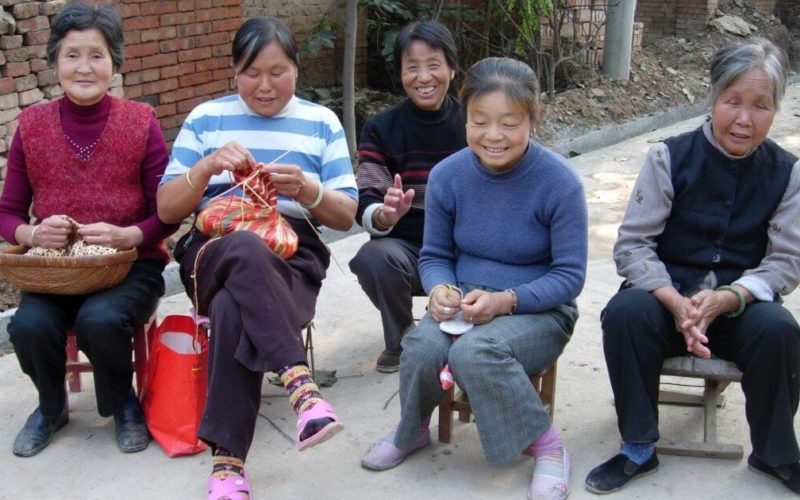China’s President advocates for the rights of women globally

The role of women the world over cannot be gainsaid. Ever since the Fourth World Conference on Women held in Beijing, China 25 years ago, women have made great strides in various fields, particularly in areas that they were traditionally marginalised.
On October 1, President of the People's Republic of China Xi Jinping hosted the virtual High-level Meeting on the Twenty-fifth Anniversary of the so called Beijing conference, whose aim was to promote gender equality and women's development.
In his statement, Jinping noted that women are creators of human civilization and drivers of social progress, and they have made extraordinary achievements across all fields.
In the ongoing fight against COVID-19, female medical and epidemic control workers, researchers, community workers and volunteers, braving danger and working around the clock, have fought at the front line of the battle.
With their dedication and ingenuity, they have written heroic epics of saving people and protecting lives.
In China, at the height of the battle against COVID-19, more than 40,000 health workers from across the country rushed to Hubei province epicenter, and two-thirds of them were women. Their courage and hard work have shown the very best of the medical profession.
Over the past 25 years, the powerful message of the Fourth World Conference on Women has unleashed many positive changes. The social status of women is significantly higher. Increasingly women are playing an important role of "supporting half of the sky". Gender equality and women's empowerment are now important goals of the 2030 Agenda for Sustainable Development.
The spread of COVID-19 worldwide has taken a heavy toll on economy, employment and people's life, risking rolling back strides women have made over the decades. In both containing COVID-19 and promoting post-COVID economic and social recovery, it is particularly important the special needs of women are addressed in line with the Beijing Declaration and Platform for Action.
Jinping proposed some steps through which this can be achieved. First is minimising the impact of COVID-19 on women. We need to pay special attention to the health, social and psychological needs and working environment of frontline women medical workers. We also need to place the protection of women's and girls' rights and interests high on the agenda of both public health and economic reopening.
In particular, we need to create more job opportunities for women and crack down on violations of women's rights and interests. We need to improve social services, with priority given to special groups such as pregnant and postnatal women, and children. Special care may be given to women in difficult situations such as poverty, old age or disability.

Secondly, we need to strive for genuine gender equality. While posing unprecedented challenges, COVID-19 also presents an opportunity for us to draw lessons from it and reshape the future. Global development needs to be placed on a course that is more equal, inclusive and sustainable, and women's development is an important criterion to gauge its progress.
Protection of women's rights and interests must become the commitment at the national level. As we pursue post-COVID recovery, we should create new opportunities for women to participate in decision-making and be more involved in national, economic, cultural and social governance. We need to eliminate prejudice, discrimination and violence against women and make gender equality a social norm and moral imperative observed by all.
Third, we need to ensure that women lead from the front. In the 21st century, the aspiration for a better life will be meaningless without all-round progress in women's development. This aspiration can only be achieved when women contribute even greater vision and strength to this cause.
We also need to remove barriers and create an enabling environment in which women are motivated, their creativity is fully unleashed, and they truly feel satisfied, happy and secure. We need to fully leverage the role of the government and mobilize all stakeholders to support women.
Fourth, we need to enhance global cooperation in advancing women's development. Jinping asked the UN to do more in eliminating violence, discrimination, poverty and other old problems, and to address new challenges such as bridging the gender digital divide. We also need to support greater representation of women in the UN system.
Equality between men and women is a basic state policy in China. The country has established a legal system comprising over 100 laws and regulations for protecting women's rights and interests. As a matter of fact, China is recognised by the World Health Organization as one of the ten fast-track countries in women's and children's health.
In China, the gender gap in compulsory education has been largely closed. Women account for over 40 percent of the country's workforce, and more than half of China's Internet start-up businesses are set up by women.
In the next five years, China will donate another 10 million dollars to UN Women. The country will also continue to fund the UNESCO Prize for Girls' and Women's Education to support this global effort. China also proposes the convening in 2025 of another Global Leaders' Meeting on Gender Equality and Women's Empowerment.
There is a long way to go to build a world in which all women are truly free from discrimination, as well as a society operating fully on the principles of inclusive development. Therefore, we must put more effort to achieve gender equality and advance the global cause of women's development.




